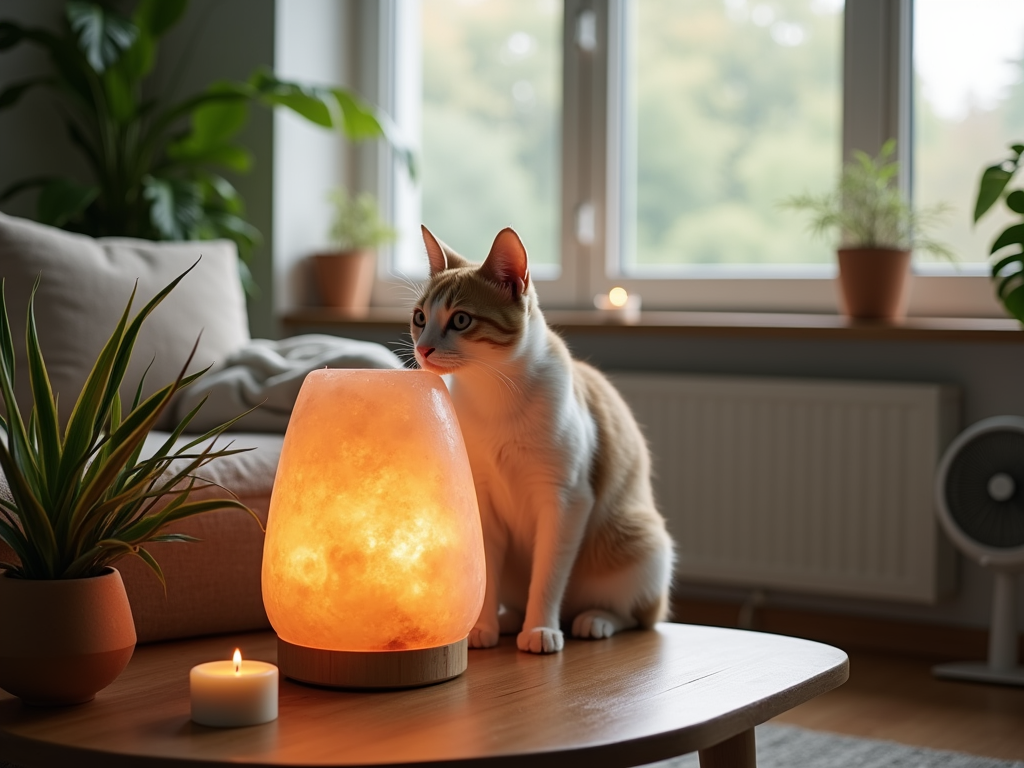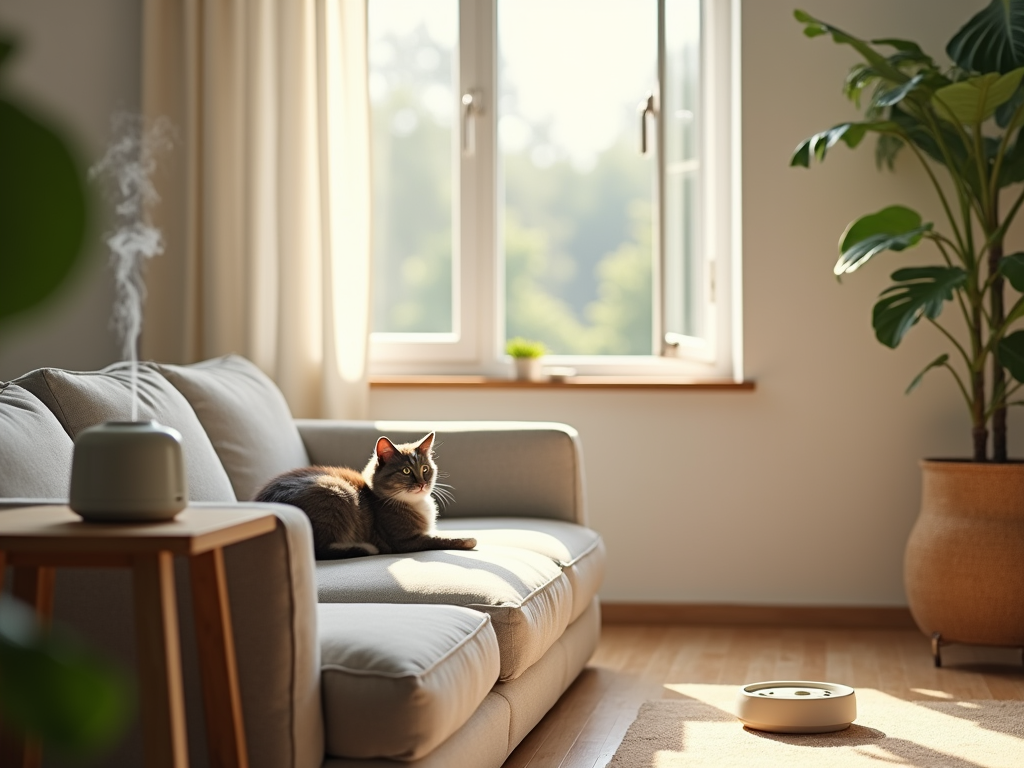
Burning incense can harm cats because it releases particles and volatile organic compounds (VOCs) that irritate their respiratory systems. Cats exposed to incense smoke risk respiratory inflammation, allergic reactions, or chronic issues. Adding toxic compounds from some essential oils heightens these dangers. Keeping your home free of irritating fragrances protects your cat’s health.
Key Takeaways
- Cats have sensitive respiratory systems, and incense smoke can aggravate or worsen conditions such as asthma.
- Smoke particles and VOCs from incense can settle in their lungs, leading to long-term complications.
- Many essential oils linked with incense are harmful to cats since they lack the enzymes to process specific chemicals.
- Signs of exposure include difficulty breathing, excess drooling, vomiting, sluggishness, and unusual behaviors.
- Safer options like beeswax candles, Himalayan salt lamps, or pet-safe plants add a pleasant scent without putting your cat at risk.
How Incense Smoke Can Affect Your Cat’s Health
Incense smoke carries particulate matter and volatile organic compounds (VOCs) that can be harsh on your cat’s delicate respiratory system. Cats have smaller airways compared to humans, making them far more sensitive to airborne pollutants. Even a small amount of smoke can linger in the air, potentially triggering a wide range of health issues.
The particulate matter from incense often settles in the lungs, increasing the risk of airway inflammation. For cats already prone to respiratory problems, this can aggravate conditions like asthma or worsen existing allergies. The burned compounds in incense can also release toxic chemicals that may further irritate their system. Keeping your home ventilated and switching to healthier alternatives is crucial. If you’re looking for tips to revive your incense for personal use, you might find this guide on making incense smell good again helpful.
Why Essential Oils and Incense Pose a Double Threat to Cats
Essential oils and incense together can create a risky environment for your cat. Cats lack a liver enzyme that’s essential for processing phenols and other toxic compounds found in many popular essential oils. Without this ability, these toxins can build up in their system, leading to serious health problems.
Some of the most dangerous oils include tea tree, peppermint, and citrus. These oils are often used for their pleasant aromas, but their compounds can be harmful when ingested, absorbed through the skin, or even inhaled. Signs that a cat may have been exposed include:
- Respiratory trouble
- Excessive drooling
- Vomiting
- Lethargy
Unfortunately, even diffused essential oils, which can linger in the air, pose risks as cats inhale them. Pair this with the smoke and chemicals emitted by incense, and the problem multiplies.
The combination of diffused oils and burning incense can lead to an overload of airborne irritants. Incense itself releases particulate matter and potentially toxic substances that can aggravate your cat’s sensitive respiratory system. If you’re looking for ways to safely refresh your space and notice your incense sticks are losing their effectiveness, there are tips on how to make your incense stick smell good again—but even so, keeping these products entirely away from cats is a safer choice.
Always be cautious with scented products in shared spaces to ensure your pet’s well-being.
If your cat is exposed to incense or essential oils, certain symptoms can signal toxicity or irritations. Watch for respiratory signs like sneezing, coughing, wheezing, or nasal discharge. Difficulty breathing or watery eyes are also red flags. These physical symptoms often appear quickly after exposure.
Behavioral changes are another concern. A cat might hide more frequently, groom excessively, or stop meowing as much. Pay attention if they seem less interested in food—it could indicate an upset system. Prolonged exposure to essential oils can even lead to liver damage, while incense may cause chronic respiratory complications.
Prompt action matters. If I notice these signs, I always seek veterinary advice immediately. Want to reduce potential risks? Learn more about safe alternatives by checking resources such as are home fragrances dangerous. Prevention can make all the difference.
Safer Ways to Make Your Home Smell Great Without Harming Your Cat
I recommend using beeswax candles. They burn clean and don’t release chemicals that might upset your cat’s sensitive system. Himalayan salt lamps are another great option. Aside from their soft glow, they help purify the air naturally. Homemade air fresheners with pet-safe essential oils—like lavender or chamomile—can also work wonders. Just make sure to research the oils carefully to avoid anything toxic.
Adding houseplants can be a win-win. Spider plants and snake plants clean the air while being safe companions for your furry friend. They bring freshness to the space without any hidden dangers.
I always steer clear of plug-in air fresheners or sprays. They often release chemicals that can linger in the air and irritate a cat’s lungs. If you’re curious about safer scent solutions, you can also explore tips like how to make your incense stick smell good again.
How to Create a Cat-Friendly Aroma Environment
I always make sure there’s enough ventilation in any space where candles, incense, or diffusers are used. Opening windows or using fans can lower the concentration of airborne particles that might irritate a cat’s sensitive respiratory system. For their comfort, I also stick with unscented cleaning products and cat litter. These choices help reduce exposure to fragrances that might cause stress or breathing issues.
It’s essential to keep things like essential oils, incense, and other fragrant products out of your cat’s reach. Cats are naturally curious, and some of these items can be harmful if touched, licked, or even inhaled too closely.
I always ensure my cat has access to plenty of fresh, clean water every day. This helps flush out any traces of potentially harmful substances. If you’re worried about incense and pets, find more helpful insights in this guide on home fragrances.

Sources:
ASPCA Animal Poison Control Center
PetMD
VCA Animal Hospitals
